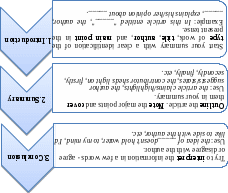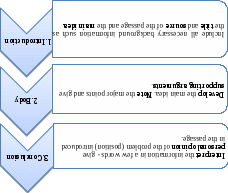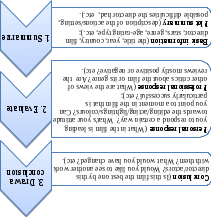Методическое пособие по практике основного иностранного языка (английский) для направления 050100 Педагогическое образование
 Скачать 0.89 Mb. Скачать 0.89 Mb.
|
|
| | | | | | | | | | | | | | 11 | | 12 | | 13 | | |
| | | | | | | | | | | 1 | | | | | | | | | |
| | | | | | | | | | | | | | | | | | | | |
| | | | | | | | | 17 | | | | | 2 | | | | | | |
| | | 14 | | | | 16 33 | | | | | | | | | | | | | |
| | | | | | | | | | | | | | | | | | | | |
| | | | | | | | | | | | | | | | | | | | |
| | | | | | | | | | | | | | 4 | | | | | | |
| | | | | | | 5 | | | | | | | | | | | | | |
| | | | | | | | | | | | | | | | | | | | |
| 6 | | | | 15 | | | | | | | | | | | | | | | |
| | | | | 7 | | | | | | | | | | | | | | | |
| | | | | | | | | | | | | | | 21 | | | | | |
| | | | | | | 8 | | | | | 20 | | | | | | | | |
| | | | 18 | | | | | | | | | | | | | | | | |
| | | | | | | | | | | | | | | | | | | | |
| | | | | | | 19 | | | | | | | | | | | | | |
| | | | 9 | | | | | | | | | | | | | | | | |
| | | | | | | | | | | | | | | | | | | | |
| | | 10 | | | | | | | | | | | | | | | | | |
| | | | | | | | | | | | | | | | | | | | |
ACROSS
the group of people who controls and runs the theatre
a person who judges the quality of performances
the first night
a place in which light meals, cakes, etc are served, as well as tea, coffee, soft drinks
the area to the right and left of the stage that is hidden from the audience by curtains, scenery
moveable objects used on a theatre stage
a covering of artificial hair sometimes worn by actors on the head
a period of time during which the performance stops before continuing
a play that has an exciting story, often about solving a crime
behind the stage in the theatre
DOWN
a funny play for the theatre based on ridiculous situations and events
a person whose job is designing things (scenery, costumes)
a report in a newspaper or magazine giving the opinion of the performance
a short performance given by an actor to test whether he/she is suitable for the role
the first word in the name of the famous ballet composed by PyotrIlyich Tchaikovsky in 1875–1876
a person who writes plays
a theatre (or theatres collectively) outside the London
a light amusing play with songs
the scenery used for the play
the words which the actors have to speak when they are on the stage
company which is expected to exist for a long time without any changes
5.Dramatize the following situations.
You have just returned from the theatre. The members of your family want to know your impression.
Yesterday you had a visit to the Variety Theatre. The performance was a failure. Discuss it with your parents.
You’ve just seen the first act of “The Nutcracker”. Share your impression with the friend during an intermission.
Your husband likes to go to the theatre only for the sake of a bar. Assure him that there is something more to admire.
Your boy-friend (girl-friend) hates the idea of going to the first night. Talk him into going to any premiere.
You are a theatregoer, but your close friend is not fond of theatre. You invite your friend to see the play which you have seen many times and want to see again. But your friend refuses. Persuade him (he) to see this performance.
6. Round table “Theatre Today”. Present any theatre (Russian, foreign, local) according to the following plan:
The official name
The type of the theatre (subsidized or commercial)
The brief history
The emblem
The theatre company (the director, the actors, their honours and awards)
The types and list of productions that run at the theatre (including the most popular ones)
The zest of the chosen theatre
Problems
Reading
7. Read Text 17. What issues does this review high light?
8. Underline the epithets used in the review, give their definitions.
TEXT 17. THE IMPORTANCE OF BEEING EARNEST AT REGENT’S PARK
by Charles Spencer
(A delightful open-air production of Oscar Wilde’s masterpiece persuades us to see and hear the play afresh)
The Importance of Being Earnest (1895) is the most perfect high comedy in the English language. Unfortunately, it has become almost too familiar, so that connoisseurs are often anticipating or indeed silently mouthing the greatest lines before they are delivered. Even a play as brilliant as this can lose something of its allure with repetition.
All credit then to director Irina Brown who in this delightful production persuades us to see and hear the play afresh. It helps that we are in the open air, even on a grey and drizzly night, for the breeze, birdsong and rustling leaves banish the feeling that we are watching a dusty museum piece.
Brown refuses to stage the play, as is normally the case, as if it were an almost naturalistic piece of late Victoriana. Wilde’s dialogue is the very reverse of naturalistic – it is epigrammatic, showily artificial, and blessed with a timeless sense of mischief, daring and wit that has never been equalled, though Stoppard and Orton have come close.
The stage in Kevin Knight’s design is dominated by an elegant curving ramp on which the characters often enter and exit an almost bare white stage. A large mirror reflects the audience back at itself and an ensemble of servants aggrievedly eavesdrop on their masters. The cigarette-case argument between Algernon and Jack turns into a rambunctious physical fight, with chases round, and daring leaps over, a circular table.
In the second act, set outdoors in Wilde’s original, scores of rose blooms cover the stage through which the cast have carefully to negotiate their moves.
Some might dismiss all this as an infernal liberty with Wilde’s masterpiece. I believe it is a breath of fresh air that allows us to experience the play anew. The dazzling, dizzying dialogue in which Wilde treats “all trivial things very seriously and all the serious things of life with sincere and studied triviality” zings, sings and stings in this production”.
Dominic Tighe’s Algernon is insufferably and hilariously smug as he wolfs down cucumber sandwiches while Ryan Kiggell’s Jack brings a delicious booming pomposity to the stage. Susan Wooldridge, in one of the most preposterous hats I have ever seen, slyly plays Lady Bracknell as if the old trout were secretly in on the joke of her own authoritarian outrageousness, wincing as if physically attacked when she hears the squalid details of lost babies at London railway termini. The famous handbag is merely the straw that breaks this aristocratic camel’s back. Jo Herbert and Lucy Briggs Owen duel with lethal verbal panache as Gwendolen and Cecily, the latter bringing a peaches-and-cream complexion and a palpable sexuality to the stage, the latter a rare quality in Wilde. And there is touching pathos from Julie Legrand as the bereft Miss Prism.
It is hard to imagine a finer entertainment for an enchanted summer night.
Video
VIDEO 9. FIVE TRUTHS
9. You are going to watch two films of Ophelia interpreted through the lens of Konstantin Stanislavski and Peter Brook (an eminent English theatre and film director and innovator).Read the following information before watching Video 8.
What are the differences between five of the most influential European theatre practitioners of the 20th century? How would these five directors work with the actress playing Ophelia in the famous mad scene in Shakespeare's Hamlet? What would they ask the actress to do and how would they ask the actress to behave?Five Truths, a video installation asking these questions. The multi-screen installation brings together five interpretations of Ophelia's madness in Hamletand consists of ten short films suggesting possible variations in what you might see. Ten screens of varying sizes simultaneously play films of Ophelia interpreted dramatically through the lens of Konstantin Stanislavski, Antonin Artaud, Bertolt Brecht, Jerzy Grotowski and Peter Brook.Created by director Katie Mitchell, video designer Leo Warner, set designer Vicki Mortimer, lighting designer Paule Constable and sound designer Gareth Fry, starring Michelle Terry as Ophelia.
10. Watch Video 8.Fill in the gaps in Ophelia’s monologue with the words from the list below.
He is dead and gone, lady,
He is dead and gone;
At his head a grass-green ____________,
At his heels a stone.
They bore him barefac’d on the____________
(Hey non nony, nony, hey nony)
And in his grave rain’d many a tear.
Fare you well, my dove!
There's rosemary, that's for remembrance. Pray you, love, remember. And there’s some____________, that’s for thoughts.There’s a daisy. I would give you some violets, but they ____________ all when my father died. They say he made a good end.
And will he not come again?
And will he not come again?
No, no, he is dead;
He never will come again.
Go to thy ____________;
He never will come again.
List of words: deathbed, turf, wither’d, bier, pansies.
11. Compare and contrast the two performances, share your impression of each of them.
12. Practice reciting the monologue.
Writing
13. Choose a play you have recently seen and write a review of your own.
14. Study the repertory of Yekaterinburg’s theatres. Write 3 recommendations to make British tourists visiting the city get interested.
APPENDIX 1
HOW TO MAKE A SUMMARY
 A summary is produced to show a teacher that you have read and understood the text. Surely, it has a certain structure:
A summary is produced to show a teacher that you have read and understood the text. Surely, it has a certain structure:FOLLOW THE TIPS
Use your own wording, not the sentences from the article;
Refer to all the main ideas;
Use “summarizing language”. Periodically remind your reader/listener that this is a summary by using phrases mentioned above.
(http://public.wsu.edu/mejia/Summary.htm)
APPENDIX 2
HOW TO RENDER AN ARTICLE
A rendering is a text based on the notional compression of the original with the aim of rendering its general matter.

FOLLOW THE BASIC PRINCIPALS
1) decide on what should be expressed and what should be suppressed;
2) express facts as plain statements with reference to the author of the article;
3) avoid evaluative words, phrases and statements in the body;
4) avoid figurative language;
5) use link words and introductory formulas to make your rendering sound
FOLLOW THE STRATEGIES
1) read the text and grasp the main idea and identify the topic;
2) read the text again and divide it into logical parts;
4)single out the main idea of each part;
5)give a summary of each part;
look for minor peculiarities of the article;
identify the author’s opinion;
state the questions which remained unanswered in the article;
speak on the conclusion the author comes to;
point out the facts that turned out to be new for you;
state what places of the article contradict your former views;
express your own point of view on the problem discussed;
if it is possible add your tail to the questions which remained unanswered in the article.
The introductory formulas listed below can be of use:
The headline of the article is ... The article is headlined ... The headline of the article I’ve read is...
The author of the article is...
The article is taken from the...
The central idea of the article is about... The main idea of the article is... The article is devoted to... The article deals with... The article touches upon... The purpose of the article is to give the reader some information on... The aim of the article is to provide a reader with some material on...
The paper (article) discusses some problems relating to (deals with some aspects of, considers the problem of, presents the basic theory)... The paper (article) is concerned with (devoted to)…
The paper (article) begins with a short discussion on (deals firstly with the problem of)... The first paragraph deals with...
First (at first, at the beginning) the author points out that (notes that, describes)...
Then follows a discussion on... Then the author goes on to the problem of...The next (following) paragraph deals with (presents, discusses, describes)... After discussing... the author turns to... Next (further, then) the author tries to (indicates that, explains that)...It must be emphasized that (should be noted that, is evident that, is clear that, is interesting to note that)...
The final paragraph states (describes, ends with)... The conclusion is that the problem is... The author concludes that (summarizes the)... To sum up (to summarize, to conclude) the author emphasizes (points out, admits that...) Finally (In the end) the author admits (emphasizes) that...
In my opinion (To my mind, I think)... The paper (article) is interesting (not interesting), of great importance (of no importance), valuable (invaluable), up-to-date (out-of-date), useful (useless)...
It would be a good idea to link ideas by means of discursive words and phrases: first, firstly, first of all, to start with, to begin with, secondly, thirdly, moreover, in addition, finally, lastly, not only…but also, on the one hand, on the other hand, as a result, for this reason, therefore, thus, because of this, in consequence however, nevertheless, in spite of, despite this, even though, for example, for instance,such as, in my opinion, to my mind, as I see it, I believe (that), some people believe that, according to, it is said (that), to conclude, in summary, to sum up, in conclusion, to conclude.
APPENDIX 3
HOW TO WRITE A REVIEW
A formal analysis of a film requires that the viewer breaks the film down into its component parts and discusses how those parts contribute to the whole. These parts are as follows:

WRITING TIPS
Create an umbrella argument– some larger argument under which several observations and perspectives might stand;
Don’t simply summarize the film, keep in mind the use of camera angles or editing techniques;
Don’t limit yourself to a discussion of plot and characters;
Avoid the “I” but try to find a more objective way of beginning your sentences instead of sounding biased.
(http://dartmouth.edu/writing-speech/)
APPENDIX 4
PROGRESS TESTS “CINEMA”
QUIZ 1 «FILMMAKING AND ITS CONSTITUENTS»
Give a definition: script, final cut, stunt, credit titles, dub (v).
Use in a sentence: green screen, matte, shoot (a film), classical movie stars, film/movie score.
Translate into English: сценарий, субтитры, кинорецензия, киноплёнка, монтаж фильма.
Translate into Russian: incandescent lamp, film snippet, synchronous sound, cast, reel.
QUIZ 2 «PROFESSIONS AND EQUIPMENT»
Give a definition: gaffer, location manager, director, art director, director of photography.
Give a synonym: chain of sketches, trouble, future (adj.), essential, unnatural.
Use in a sentence: clapper, dolly, producer, props master, star (v).
Translate into English: сценарист, звукооператор, съёмочная группа, крупный план, прожектор.
Translate into Russian: exterior lighting, tripod, crowd scene, long shot, cameraman.
QUIZ 3 «FILM TYPES: GENRES AND AGE-RATING SYSTEMS»
Give a definition: fantasy film, blockbuster, thriller, musical, documentary film.
Use in a sentence: western, mute film, screen version (of the novel), colour film, art-house.
Translate into English: короткометражный фильм, фильм ужасов, художественный фильм, боевик, сериал.
Translate into Russian: full-length film, cartoon, science fiction film, adventure film, educational film.
QUIZ 4 «ANIMATION: BRIGHT FUTURE OR SINKING INTO OBLIVION?»
Give a definition: hand-drawn animation, chief creative officer, trend-setter, tax break.
Use in a sentence: trailer, voice actor, lip synchronization, computer-generated imagery.
Translate into English: покадровое рисование, набросок, ключевой кадр, раскадровка
Translate into Russian: tablet, cell animation, animator, independent film.
QUIZ 5 «THE WIZARD OF OZ» – AN AMERICAN NATIONAL TREASURE»
Give a synonym: pinnacle, portion, acknowledgment, modify, possible.
Use in a sentence: unequaled color quality, viable expression, 3D conversion, artificiality of the sets, mainly in colour.
Translate into English: передовые технические достижения, монтировать, зрелищный, показ фильма (кинопоказ), чёткость изображения.
Translate into Russian: digression, commitment to perfection, tribute, retain consistency, full scale.
